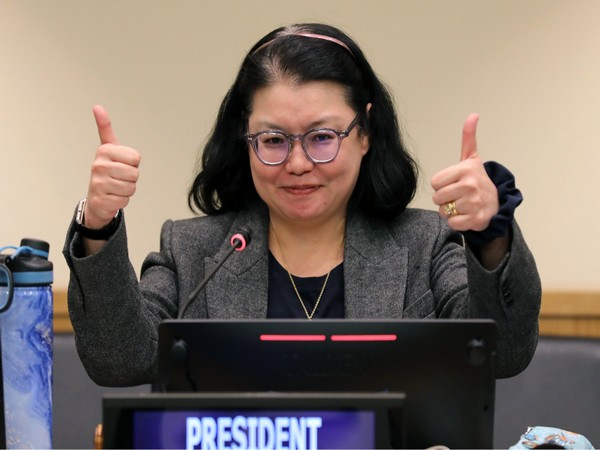New York [US], March 6: The UN Member states have finally agreed to a legally-binding “high seas treaty” to protect marine life in international waters, a fragile and vital treasure that covers nearly half the planet, according to the United Nation news.
After the UN passed this agreement, the UN chief Antonio Guterres in a statement issued by his Spokesperson late Saturday evening stated, “This action is a victory for multilateralism and for global efforts to counter the destructive trends facing ocean health, now and for generations to come”.
The agreement reached by delegates of the Intergovernmental Conference on Marine Biodiversity of Areas Beyond National Jurisdiction, better known by its acronym BBNJ, is the culmination of UN-facilitated talks that began in 2004.
The agreement was signed after two weeks of negotiations at the United Nations headquarters in New York ended in a mammoth final session of more than 36 hours – but it has been two decades in the making.
On Saturday evening, conference President Reena Lee, after the UN member states agreed, said, “The ship has reached the shore.”
‘High Seas Treaty’, the legal framework would place 30 per cent of the world’s oceans into protected areas, put more money into marine conservation, and covers access to and use of marine genetic resources.
Through his Spokesperson, Guterres said the treaty is crucial for addressing the triple planetary crisis of climate change, biodiversity loss and pollution.
“It is also vital for achieving ocean-related goals and targets of the 2030 Agenda for Sustainable Development, and the Kunming-Montreal Global Biodiversity Framework,” said the statement, referring to the so-called ’30×30′ pledge to protect a third of the world’s biodiversity – on land and sea – by 2030 made by a historic UN conference in Montreal this past December.
The statement issued by the UN Spokesperson said the Secretary-General also recognized the critical support of non-governmental organizations, civil society, academic institutions and the scientific community.
Reacting to the agreement, UN General Assembly’s 77th President Csaba Korosi tweeted, “Congratulations to all delegates and #IGC President Rena Lee for reaching consensus on a global legal framework for the high seas #BBNJ.”
“This is a massive success for multilateralism. An example of the transformation our world needs and the people we serve demand,” he added.







































